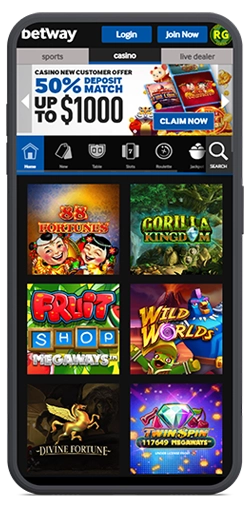The Impact of Apple and Google Policies on Casino Apps
The mobile gaming world is literally teeming with casino apps, but here’s the hard, cold truth: Apple and Google are holding all of the cards—they are in charge, like it or not. Their policies aren’t just a list of loose guidelines or rules developers can get around! They’re basically the Bible of the App Store that developers have to stick to with no deviation.
Everything from how casino apps are built to how they make money and reach players circles back to Apple and Google. That’s why we are going to break down all of the rules, what they mean for developers and users, and what could be coming up next. Are you ready? Let’s do this!
Overview of Casino Apps in Mobile Gaming
Casino apps have become a massive part of mobile gaming, and it’s not exactly hard to see why. With smartphones in almost everyone’s hands and online gambling becoming more socially acceptable, the apps are living their best lives. But it’s not all about the casino games and (hopefully) big payouts. The way the apps grow and reach users is molded by trends, strict app store rules, and what players really want in them. Below, we take a look at why they’ve taken off and how Apple and Google fit into the big picture.
Growth of Casino Apps
The global casino app market is absolutely booming—revenues surpassing $8 billion in 2024. Gambling apps account for a substantial portion of mobile gaming, and it’s being driven by increasing smartphone penetration and more relaxed regulations in different regions.
Casino apps generally fall into the following two categories:
- Real-Money Gambling Apps: These apps enable users to bet actual money on games that they would find in a land-based casino, like slots, poker, roulette, and now there is sports betting to boot. They are heavily regulated, and their availability varies based on the local laws. Developers need licenses to operate legally in specific regions.
- Social Casino Games: These apps simulate gambling experiences only without any real money stakes. Players will use virtual currency, which can be purchased but not cashed out. Social casino games, like Coin Master, are popular because they mix entertainment with microtransactions, which also makes them a nice revenue.

Role of App Stores in Casino App Distribution
App stores are the places where you get said apps! Apple’s App Store and Google Play are the biggest names in casino app distribution. The platforms connect developers with a global audience, and compliance with their guidelines is a non-negotiable.
- Apple’s Policies: Apple mandates that real-money gambling apps are geo-restricted to only those regions where gambling is legal. Developers have to hold the appropriate licenses, and apps must meet stringent security and content requirements.
- Google’s Policies: Google requires developers to comply with local laws and obtain licenses in regions where their apps are operating. The platform emphasizes user safety and transparency, and there are restrictions on advertising and in-app purchases for gambling apps.
Failing to meet these policies can result in app rejection, removal, or limited visibility, and that impacts developers’ ability to reach users and generate revenue!
Apple’s Policies on Casino Apps
Apple’s App Store policies hold tremendous sway over the success and functionality of casino apps. With strict guidelines designed to ensure compliance, security, and user protection, Apple sets the tone for how these apps are built, distributed, and experienced. From licensing requirements to app functionality, these rules dictate nearly every aspect of casino apps on iOS. For developers, navigating these policies isn’t just a necessity—it’s a challenge that shapes both the creation process and the user experience.
Apple’s App Store Review Guidelines are pretty much the blueprint for app development and distribution on iOS devices. Section 5.3 of these guidelines specifically addresses gaming, gambling, and lotteries, outlining the following policies:
– Licensing and Permissions: Apps that have real-money gaming—like sports betting, poker, casino games, and lotteries—must possess the necessary licensing and permissions for each location where the app is accessible. This guarantees that the app operates within the legal frameworks of all the regions it serves.
– Geo-Restriction: To comply with differing regional laws, gambling apps have to implement geo-restriction measures so that users can only access the app in jurisdictions where it is legally permitted.
– App Store Availability: Casino apps have to be free to download on the App Store. Monetization is only achieved via in-app purchases or other mechanisms that comply with Apple’s policies.
Requirements for Licensing and Legal Compliance in Different Regions
Given the diverse legal landscapes across regions, Apple mandates that developers provide documentation verifying their licensing and permissions for each area where the app is available. The documentation has to be current and submitted during the app review process. Failure to provide appropriate licensing can result in app rejection or removal from the App Store.
Developers are also responsible for verifying that their apps adhere to all local laws and regulations that concern gambling. This includes implementing the strictest age verification processes in order to prevent underage gambling and making sure that the app’s content is appropriate for the designated age group.
Apple enforces super strict guidelines on app functionality and monetization, such as the following:
– Native App Requirement: As of 2019, Apple requires that all gambling apps be fully native to the iOS platform. This means that apps cannot function as mere wrappers for web content (HTML5 games) but must be built using native code to verify optimal performance and security.
– In-App Purchases (IAP): All transactions for digital content within the app must utilize Apple’s in-app purchase system. The policy allows Apple to maintain transaction security and collect a commission on sales. Developers are prohibited from directing users to external purchasing mechanisms so that all digital transactions occur within the app’s ecosystem.
– Prohibition of Third-Party Payment Systems: The use of third-party payment systems for in-app purchases is strictly forbidden. All financial transactions have to be processed through Apple’s payment system, which means a consistent and secure experience for users.
Regional Restrictions and Challenges in Scaling Globally
Scaling a gambling app globally presents some distinct challenges that are all due to regional gambling restrictions.
– Varying Legal Frameworks: Gambling laws differ significantly across countries and even within regions of the same country! Developers have to navigate this complicated legal landscape so that they are compliant in every jurisdiction where the app is available.
– Geo-Blocking Implementation: To comply with regional laws, developers need to implement geo-blocking features that restrict access in prohibited areas, which requires accurate location detection and enforcement mechanisms, adding even more complexity to the app’s development and maintenance.
– Licensing Acquisition: Obtaining the necessary licenses for each region can be a time-consuming and costly process. Developers need to engage with multiple regulatory bodies, each with its own set of requirements and procedures.
As for how this impacts user experience, Apple’s policies play a big part in accessibility as well.
– Age Restrictions: Gambling apps are required to implement strict age verification processes in order to prevent access by underage users. This means verifying the user’s date of birth and, in most cases, additional identification methods. While these measures are absolutely essential for legal compliance, they can introduce some friction into the user onboarding process.
– Geo-Blocking: Users attempting to access the app from regions where gambling is prohibited will encounter access restrictions. This makes sure they are in compliance with local laws but can cause user annoyance, especially if they aren’t aware of the legal constraints in their area.
Influence on Design and User Interfaces
Apple’s guidelines also influence the design and user interface of gambling apps in the following areas:
– Native Design Requirements: The mandate for native iOS development compels developers to adhere to Apple’s Human Interface Guidelines. This results in a consistent look and feel across apps but does limit creative design approaches that deviate from standard iOS aesthetics.
– User Interface Consistency: Apple enforces the use of native components to guarantee a familiar experience across all apps. Again, this can restrict developers from implementing unique design elements that could make their app “pop” in the market.
Google’s Policies on Casino Apps
Now for Google! The Google Play Store’s policies demonstrate how casino apps are allowed to operate in the Android ecosystem. The guidelines are made to balance the needs of developers with user safety and compliance with regional laws. Real-money gambling apps, in particular, need to meet specific criteria to stay on the platform. We’ll examine Google’s requirements, compare its flexibility with Apple’s stricter approach, and look at how exactly the policies impact accessibility and security for both users and developers!
The Play Store is an important platform for casino apps, as it gives access to billions of Android (Google’s smartphone) users worldwide. Google’s policies for gambling apps concentrate on legal compliance and transparent operations to maintain trust and safety.
Google Play Store’s Approach to Real-Money Gambling Apps
Unlike some platforms, Google permits real-money gambling apps in regions where they are legally allowed. But the approval process involves meeting the following criteria:
– Licensing Requirements: Developers have to provide proof of proper licensing for every jurisdiction where the app will be available. The licenses show that the app is complying with the gambling regulations that are specific to the country or state.
– Transparent Functionality: The app has to clearly explain its features, terms, and conditions to users. Misleading or unclear descriptions will cause it to be rejected during the approval process.
– Compliance with Regional Laws: Developers are responsible for adhering to the laws of every region where their app is distributed, including advertising restrictions, content regulations, and user protections.
App Approval and Legal Documentation
Google’s approval process for gambling apps is super thorough, and developers have to submit detailed documentation, including the following:
– Licensing verification for every applicable region.
– Proof that the app complies with local advertising and age restrictions.
– Confirmation that appropriate safeguards, like geo-blocking, are in place.
Failure to meet these criteria can result in the app being denied listing on the Play Store.
Google’s approach to gambling apps veers from Apple’s in a few ways—developers have a little more wiggle room in navigating regional requirements.
Comparing Flexibility Between Platforms
Google is generally more adaptable to regional regulations. For instance, it allows developers to distribute gambling apps in several countries, including the U.S., as long as local laws are respected. Apple, on the other hand, has stricter licensing and content requirements and requires gambling apps to be fully native and geo-restricted from day one.
Google’s policies mean fewer upfront barriers for developers. Developers can design apps using various frameworks without the need to build totally native versions. However, this flexibility comes with its own hurdles, as apps still have to comply with regional rules and implement strict content moderation to stay compliant.
Impact on Android Developers
Android’s global reach makes Google’s policies a much more attractive option for developers looking to expand. With broader access to markets and fewer restrictions on app design, developers can save money and time. But with the advantage comes the challenge of making sure there is consistent compliance across many jurisdictions, which can be resource-intensive for smaller teams.
The Google Play Store policies are not just for the developers; they also mold how the users interact with casino apps. Google emphasizes user protection, as it wants to decrease any risks that are tied to underage gambling, fraudulent activity, and unregulated content!
Safety Measures for Users
– Age Verification: All gambling apps must include the strongest age verification systems. The processes verify that only users above the legal gambling age in their jurisdiction can access the app. Verification includes date of birth checks, government ID submission, or linking accounts to age-verified profiles.
– Secure Transactions: Google mandates secure payment methods within apps so that users can safely deposit and withdraw funds. Apps must comply with strict data protection standards to avoid breaches or misuse of sensitive info.
Challenges in Restricted Regions
Geo-blocking is also a necessary and important requirement for gambling apps, but it does pose certain challenges for users:
– Users in areas where gambling is restricted can find themselves locked out of apps they have previously accessed due to licensing or legal changes.
– Developers have to integrate accurate location detection systems, which can sometimes cause misidentifications and unwarranted blocks for legit users.
Accessibility limitations also affect how quickly users can onboard and use gambling apps, especially in regions that have stricter regulatory frameworks or evolving gambling laws.
Impact on Casino App Development
Building and getting a casino app up and running comes with its fair share of challenges. Between strict platform rules, high compliance costs, and the unrelenting pressure to keep innovating, developers have a lot of balls to juggle. Despite the hurdles, some apps have managed to carve out a niche and change with the landscape!
Monetization Challenges
Making money from casino apps isn’t as easy as it looks–platforms like Apple and Google impose very strict rules, especially around in-app purchases (IAPs) for gambling-related features. Developers can’t offer direct monetary rewards, so they have to get creative.
Most apps sell virtual goods like tokens, spins, or coins instead. These items enhance the gameplay without straying into real-money gambling. Some apps also focus on building social experiences—think leaderboards or multiplayer modes—giving users a reason to spend without making it about pure luck or winnings.
Policies Around Advertisements and Partnerships
Advertising is another way for casino apps to bring in a lot of revenue, but there are plenty of strings attached–gambling-related ads must meet strict guidelines, and in some regions, they’re totally banned.
On top of that, when casino apps partner with third-party advertisers, it means double-checking that everything complies with both platform rules and local laws. A single misstep, like accidentally running an ad in the wrong region, can result in big fines or even app suspension. It’s a really fine line to walk!
Compliance Costs
And then there are the costs that come with meeting legal and platform requirements that pile up and pile up fast. Just for starters, getting the necessary licenses can be a painful jumping-through-hoops exercise—and they’re not exactly heap. Developers usually have to pay separate licensing fees for every single region they want to operate in, and those fees can skyrocket in certain jurisdictions.
And then there’s the technology side of things. Features like geo-restrictions and age verification don’t come cheap, but they’re a non-negotiable for staying within the rules. Throw in the need for legal consultants and compliance teams, and the budget keeps inflating!
Licensing and Auditing
Once you’ve got the licenses, keeping them isn’t always an easy ride—developers are up against regular audits to prove their apps are following the letter of the law.
The audits cover everything from how money flows through the app to how user data is handled.
Failing an audit isn’t just a slap on the wrist—it could mean losing licenses or getting booted off platforms entirely. For developers, this means constant vigilance and ongoing expenses to avoid any costly mistakes.
Innovation Opportunities and Roadblocks
Casino app developers have to work within tight rules, but that doesn’t mean that there isn’t any room for a little creativity! Some of the most successful apps stand out by rethinking how gambling fits into entertainment. They’ve added features like interactive storylines, collectible rewards, or social challenges to keep users hooked without bending the rules.
That said, the same policies that spark creativity can also feel like a roadblock. Developers might want to experiment with different payment methods or bonus systems, but if they clash with platform guidelines, those ideas will never make it past the brainstorming stage.
Examples of Casino Apps Navigating Challenges

Coin Master: A standout in the social gaming world, Coin Master mixes slots with village-building mechanics. The mix of strategy and luck keeps players coming back and spending, all while staying well within platform guidelines.

Slotomania: Known for its bright, engaging designs and multiplayer features, Slotomania leans heavily on virtual rewards and regular updates to maintain a loyal player base.

BetMGM Casino: This casino app takes a standard approach to real-money gambling, as it concentrates on transparency and user-friendly features while meeting all regulatory requirements.

Caesars Palace Casino: By blending the solid reputation of the Caesars brand with virtual rewards, this casino app balances entertainment with compliance.

FanDuel Casino: Like DraftKings, FanDuel brought its trusted brand into casino gaming, and has a ton of games that follow regional rules.

888 Casino: A global name in gambling, 888 Casino made a name for itself by tailoring its features to meet the needs of different regions—it stays in compliance without losing its competitive edge.

Unibet Casino: Another heavyweight, Unibet fused a slick user experience with careful attention to local laws, and that makes it a favorite among international players.
Broader Implications for the Casino Industry
Casino apps aren’t only changing how people play—they’re completely redefining the gambling industry on a global scale. The policies that are set in stone by app stores, combined with regional regulations and ethical considerations, are fashioning a landscape where technology, law, and responsibility collide. From who can access these apps to how they operate, the ripple effects are big and unavoidable.
Regional Accessibility
The reach of casino apps is pretty much dictated by the rules of Apple’s App Store and Google Play. The platforms control how all apps can be distributed, which means developers need to adhere to local gambling laws. Apple, for instance, gives developers the tools to choose the regions where their apps are accessible, which guarantees compliance with varying regulations.
Google Play has followed suit by ushering in gambling apps in select countries while maintaining strict guidelines on licensing and user protection. This particular approach gives developers access to larger audiences but also demands really careful oversight in order to meet regional requirements.
Case Studies: Countries with Strict App Regulations
- South Korea: South Korea’s restrictive policies have historically limited casino app availability, particularly those rated for adult audiences. Apple recently adjusted its own policies in response, allowing age-restricted content within the App Store under certain conditions, demonstrating how platform rules can shift to meet local demands.
- Sweden: Sweden’s gambling market operates under stringent laws that prioritize user protection. Developers must integrate responsible gambling features, like limits on spending and playtime, as a condition for operating in the country. The regulations make Sweden a prime example of how regional rules can influence app functionality and design.
Legal and Ethical Considerations
The intersection of app store policies and regional gambling laws fashions a booby-trapped playing field for developers. Developers operating in the U.S. have to navigate state-specific laws—New Jersey, as one example, requires geolocation tools to verify that users are physically within the state borders to take part in any gambling activities.
The overlap between tech policies and gambling regulations means that developers need to stay on top of licensing, adhere to advertising restrictions, and design features that match up with both the legal and platform expectations.
Ethical Implications of Mobile Real-Money Gambling
With the explosion of mobile casino apps, some important ethical questions are increasingly coming to the forefront.
- Addiction Risks: The easy accessibility of gambling apps has raised and heightened concerns about addiction. For some users, the sheer convenience of mobile gambling can cause compulsive behavior, and that prompts an urgent need for stronger safeguards.
- Underage Gambling: Even with the current age restrictions in place, there’s an ongoing risk of minors being able to gain access to casino apps. Developers and platforms face growing pressure to improve age verification processes in order to prevent any underage participation.
- Privacy Concerns: Almost all casino apps collect sensitive user data, including their financial info and location details. The possibility for misuse or breaches raises a lot of serious privacy concerns, particularly in the regions where data protection laws are less stringent.
Addressing the above ethical dilemmas takes a multi-pronged approach—developers have to design apps that prioritize responsible gaming, while platforms and regulators need to enforce the strictest standards in order to minimize any possible harm.
Predictions for the Future
The world of casino apps is anything but static! As technology evolves and industries keep pushing boundaries, app store policies are bound to change. Developers, regulators, and platform owners all have a part in shaping what comes next for casino apps. Between policy tweaks and tech innovations, we think the future looks both challenging and full of promise!
Evolving Policies
Apple and Google have already shown a willingness to adapt certain policies, especially because gambling apps keep surging in popularity. Going forward, we could see a more personalized approach to regional regulations. Platforms could roll out tiered policies for apps based on their risk level, which would be a better balance of user protection and market accessibility.
Another area to watch out for is transparency. Developers’ and consumer groups’ advocacy might push Apple and Google to clarify their guidelines even further or decrease friction in the approval process for licensed gambling apps. Platforms may also expand the list of approved countries for gambling apps as they refine compliance mechanisms like geo-blocking and age verification.
Role of Advocacy and Industry Feedback
Industry feedback will be a huge force in molding all future policies. Developers and gaming associations typically push for clearer and more consistent rules to avoid any confusion during the app approval process. And advocacy groups that are focused on consumer protection will likely call for stricter controls, like mandatory spending limits or better age verification systems.
The competing pressures will keep Apple and Google on their toes for sure—they’ll have to balance market growth with social responsibility. If platforms aren’t up to the task, we could see more pressure for government intervention in regulating gambling apps.
Impact of Emerging Technologies
Emerging technologies like AI, augmented/virtual reality (AR/VR), and blockchain are poised to alter the casino app landscape—and the policies governing them.
- AI Integration: Artificial intelligence is already changing user experiences in gambling apps—there are personalized game recommendations and real-time spending alerts. Platforms may have to revise their current guidelines to regulate how AI tools are used to be certain that they still prioritize responsible gaming and don’t exploit user behavior.
- AR/VR Gaming: Augmented and virtual reality could introduce totally new gaming experiences that lets players feel like they’re actually in a physical casino without having to get up from their sofas. Regulators and platforms will have to address how these types of super immersive environments handle spending limits, age verification, and player privacy.

- Blockchain and Decentralized Platforms: Blockchain technology could enable more secure, transparent transactions while also paving the way for decentralized app distribution. If developers are able to bypass traditional app stores altogether and offer apps directly to consumers via decentralized platforms, platforms like Apple and Google may need to rethink their role.
Potential Shifts in App Distribution Models
The ascendancy of decentralized platforms, which is being fueled by blockchain, could actually challenge Apple and Google’s total dominance over app distribution. The platforms would let developers reach users without needing to go through the stringent approval processes of traditional app stores. While this opens up new opportunities for innovation, it also raises concerns about unregulated gambling apps operating without oversight.
At the same time, platforms could welcome any emerging technologies–not resist them. Apple and Google would be able to introduce specialized guidelines for apps that are leveraging AR/VR or blockchain, positioning themselves as leaders in building responsible innovation instead of standing in the way of progress.
Conclusion: Apple & Google Run the Show
Apple and Google hold the reins when it comes to the casino app industry. Developers aren’t just making games—they’re working through a maze of rules, requirements, and expectations crafted by these tech leaders. It’s a super tough landscape, but for those who find creative ways to stay within the lines, it’s well worth the effort!
Here’s a recap of everything we covered:
- Where You Can Play: App store policies dictate which regions casino apps can reach, and local laws add extra layers of complexity.
- Earning Revenue: Strict rules around in-app purchases and ads push developers to think creatively about generating income.
- The Cost of Compliance: Licensing, audits, and user protections are anything but cheap, making operational costs a constant consideration.
- Creative Strategies: Apps concentrating on virtual rewards, community features, and engaging gameplay are finding a lot of success despite any restrictions.
- Looking Ahead: Technologies like AI, AR/VR, and blockchain are making movies and predicting how casino apps could change in both features and distribution.
The casino app world definitely isn’t for the faint-hearted. Developers have to constantly juggle platform rules and user expectations and also be on the lookout for the next big thing in tech. Playing it safe isn’t always the best strategy—being flexible, forward-thinking, and ready for whatever changes come next is a much better one. The game is always changing, but those who are willing to take smart chances and think outside of the box will be rewarded in the end!
Frequently Asked Questions
Below are answers to the most frequently asked questions we have gotten from our readers that shed more light on Apple and Google’s policies on casino apps!
What Are Apple’s Key Policies for Casino Apps?
Apple permits real-money gambling apps on the App Store under the following strict conditions:
– Licensing and Permissions: Apps must possess the necessary licenses and permissions for the regions where they are in operation.
– Geographical Restrictions: Functionality has to be restricted to only the regions where the app is legally authorized.
– App Nature: Gambling apps need to be native to iOS; HTML5 games that have real-money gaming are prohibited.
– Age Restrictions: A minimum age rating of 17+ is required for every single gambling app.
How Do Google’s Gambling App Policies Differ from Apple’s?
Google’s Play Store policies for gambling apps differ in a few different ways:
– Country-Specific Allowances: Google permits gambling apps in select countries—but they are all subject to local laws and regulations.
– Developer Requirements: Developers have to complete a specific application process and provide valid licenses for each country where the app is distributed.
– App Distribution: Gambling apps must be free to download and cannot use Google Play’s in-app billing system for any type of gambling transactions.
Why Are Some Casino Apps Not Available in Certain Regions?
The availability of casino apps depends on the following factors:
– Local Legislation: Some regions have strict laws prohibiting or regulating online gambling, which means there will be restricted app availability.
– App Store Policies: Both Apple and Google enforce policies that comply with regional laws, which limit app distribution in certain areas.
– Licensing Issues: Developers might lack the necessary licenses to operate in specific regions, and that results in the unavailability of casino apps to residents.
What Challenges Do Casino App Developers Face Due to App Store Policies?
Developers can come up against the following obstacles:
– Compliance Costs: Securing licenses and adhering to differing regional laws is both financially and logistically demanding.
– Monetization Restrictions: Limitations on in-app purchases and advertising hinder revenue generation strategies for casino apps.
– Frequent Policy Changes: Staying updated with all changing app store guidelines takes constant monitoring and adaptation.
How Might App Store Policies Change in the Future?
Potential future developments could look like this:
– Policy Expansion: App stores could allow gambling apps in other regions as the laws change and the demand goes up.
– Technological Integration: Newer technologies like blockchain and AI could result in additional guidelines that address security and user experience.
– Improved Compliance Measures: Stricter enforcement of age verification and better responsible gambling features could be implemented to protect users even further.





